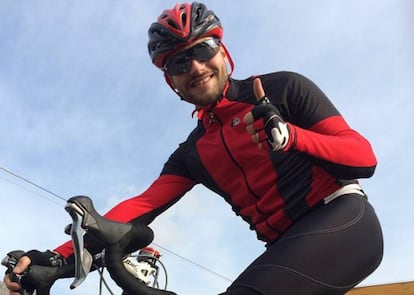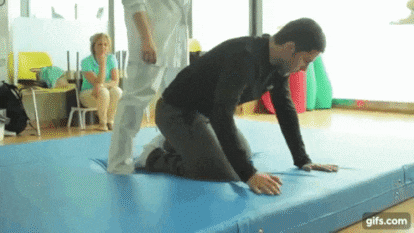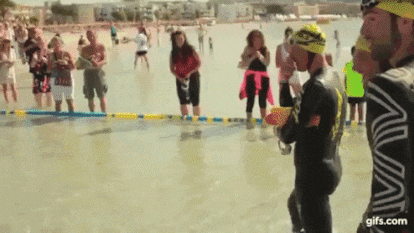“I was struck by lightning, in a coma, and won bronze in para-cycling”
There is a one in 10,000,000 chance of getting hit by lightning in Spain. Joan Reinoso was the one.

I only have a few memories of the day I was hit by lightning— and they tend to come in flashes. For example, I remember I was out on a boat following a diving competition in Pollença bay, on the island of Mallorca. I also remember that, even though the day had started off clear and sunny, I could see dark clouds approaching. The next memory I have takes place in the hospital, where I opened my eyes, blinked up at a white ceiling, heard the beeps of the heart monitor, beep-beep-beep-beep, and although I still wasn’t sure exactly what, I knew that something terrible had happened to me.
I ended up hearing the detailed version of the events that transpired on May 6, 2012 from other people present at the scene: that a huge electric storm had unraveled before us, that a bolt of lightning had struck my left hand and exited from the side of my skull, that I was knocked unconscious, and that my body took on a scorched black color. I even “smelled singed” according to my mother, and was in a coma for 28 days at Son Espases hospital, where my loved ones were told that my recovery was uncertain. The hospital had no experience treating people who had been struck by lightning (they say that in Spain, there is a one in 10,000,000 chance of this happening to someone) and that my life was hanging by a thread.
I wanted to embrace my family and tell them it was going to be okay, but my body wouldn’t take my brain’s orders— I felt impotent
Despite all of this, 28 days later I managed to open my eyes. In fact, opening my eyes was the only thing I could do that day. I wanted to tell my family: “Don’t worry, I’ll get through this.” I wanted nothing more than to bury myself in their arms. But even though I truly wanted to do these things, my body would not respond to my brain’s orders. It was a grim sensation, one that made me feel brutally impotent. I was lucky though, because I regained mobility within weeks.
On May 8, 2012, two days after my accident and when I was still in a coma, my friends made a Facebook group to show support. “My friend is stronger than lightning,” read the first post. When I woke up from the coma, the supportive comments— in the Facebook group, and beyond this social media platform— really encouraged me.
My friends were a source of constant support from the beginning, as were the health specialists who treated me. Thankfully, the lightning only affected me physically, and had no effect on my cognitive abilities, so I that I still had my rationality, memory, and learning capacities intact. This was all very important, since at 20 years old, I not only had to learn how to walk again— as seen in the image below— but also how to perform other basic tasks such as reading, writing, and eating without assistance. At a slow pace, I started re-learning these basic movements.

During my recovery time there were extremely tough days. While you’re fighting to make the simplest movement, or repeating every physical therapy exercise for the umpteenth time, you’re turning the same morbid questions in your mind, such as: “How am I going to end up after this?” “What things will or won’t I be able to do?” “Will I ever be the same?” And, above all, “Why did this have to happen to me?”
Luckily, my family didn’t leave my side during the whole recovery period, and I am extremely proud of them and grateful as well. One of the biggest keys to my recovery was the proposition my uncle made me:
At 20 years old, I had to learn how to walk, read, write and eat without assistance
— Before the accident, you told me you wanted to participate in the swimming trial of an Ironman relay triathlon. Why don't you try?
This seemed like a Utopian idea. But on May 10, 2014, two years and four days after my accident, equipped with the race number bib 3605, I swam 1,9 kilometers in the Ironman 70.3 Mallorca swimming challenge. I felt drained by the end of it, and was barely able to stumble out of the water. The people on the sidelines cheering me on helped to boost my confidence, and for a few seconds I felt like I was the king of the world. Naturally, since I still had some issues with mobility, it took forever to finish the race, but that was besides the point: not even the winner could feel as happy as I did.

Getting back in the ocean after what had happened to me wasn’t a scary concept, because I have always considered it to be a part of me. That being said, I now pay closer attention to the weather forecasts and updates. What amazes me the most is that, a little before the accident, I had got an anchor, a fish, and a lightning bolt tattooed on me. Yes, I got a tattoo of a lightning bolt right before before I was struck by lightning. If I had known this was going to happen, I would’ve gotten a lottery ticket tattoo instead. It’s not the only one I have though: now, I also have a scar that runs along the path that the lightning took on my skin.
I’ve always liked sports, but I had never planned on making a career out of it. At the time of the accident, my goal was to be a firefighter. However, that lightning must have imbued me with some sort of new energy, because after swimming in the triathlon, I took another leap in my recovery process by taking up cycling. The feeling of the wind in my face fascinates me. And, above all, the sensation of barreling down a mountain, then looking up to see the distance you’ve covered, and proving to yourself that you are strong despite the obstacles in your way. I started to shred through kilometers and ended up winning the bronze medal in the junior adapted tricycle category at the 2017 South Africa UCI Para-Cycling Road World Championships.
Now, I have a scar that runs along the path of the lightning bolt that struck my skin
Despite all of my achievements, I occasionally get bombarded by thoughts of what might have been: if we had been more careful about the weather and not have gone out on that boat on May 6, then none of this would have happened. But I no longer get hung up on the phrase , “Why me?” I have focused my life in another direction, and know the constant and unconditional love and support of the people around me. But I still have a long way to go...literally. Because my current goal is to go back to running. My body won’t let me yet, because I haven’t regained the same ability to move that I had before the accident, but I am determined to break down this barrier someday soon, the same way I have torn down the ones before this.
Text written by Álvaro Llorca based on interviews with Joan Reinoso.
English edition by Laura Rodríguez.
Tu suscripción se está usando en otro dispositivo
¿Quieres añadir otro usuario a tu suscripción?
Si continúas leyendo en este dispositivo, no se podrá leer en el otro.
FlechaTu suscripción se está usando en otro dispositivo y solo puedes acceder a EL PAÍS desde un dispositivo a la vez.
Si quieres compartir tu cuenta, cambia tu suscripción a la modalidad Premium, así podrás añadir otro usuario. Cada uno accederá con su propia cuenta de email, lo que os permitirá personalizar vuestra experiencia en EL PAÍS.
¿Tienes una suscripción de empresa? Accede aquí para contratar más cuentas.
En el caso de no saber quién está usando tu cuenta, te recomendamos cambiar tu contraseña aquí.
Si decides continuar compartiendo tu cuenta, este mensaje se mostrará en tu dispositivo y en el de la otra persona que está usando tu cuenta de forma indefinida, afectando a tu experiencia de lectura. Puedes consultar aquí los términos y condiciones de la suscripción digital.








































